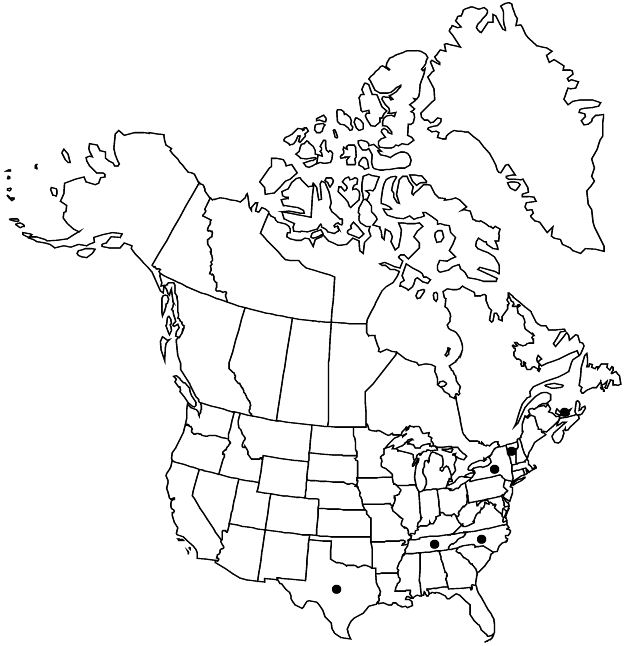Rosa tomentosa
Fl. Brit. 2: 539. 1800.
Shrubs, climbing; rhizomatous or not. Stems arching, 7–20(–30) dm, internodes long; distal branches spreading, bark pale green; infrastipular prickles single or paired, curved or ± erect, 3–6 × 2.5–3.5 mm, lengths ± uniform, internodal prickles sometimes mostly smaller, with aciculi, rarely absent. Leaves deciduous, 5–7.5(–11) cm; stipules 10–16(–20) × 3–4 mm, auricles 2–5 mm, margins densely glandular-ciliate, surfaces tomentose, often glandular abaxially; petiole and rachis with sparse pricklets, tomentulose, glandular; leaflets 5–7, terminal: petiolule 6–8 mm, blade orbiculate to ovate-lanceolate or elliptic, 15–30(–60) × 8–22(–50) mm, base obtuse, margins 1- or multi-serrate, teeth 13–20 per side, apex acute, abaxial surfaces tomentose, usually resinous-glandular, glands resin-scented, adaxial pale or grayish green, dull, glabrous or pubescent. Inflorescences panicles, 1–6-flowered. Pedicels erect, (11–)20–35 mm, densely stipitate-glandular; bracts 2, ovate-lanceolate, 13–14 × 5–7 mm, margins ciliate-glandular, surfaces tomentose, glandular or eglandular. Flowers 3.5–5 cm diam.; hypanthium ovoid, 6–7 × 4 mm, stipitate-glandular, setose, rarely eglandular, neck 1.5 × 2 mm; sepals spreading or erect, ovate-lanceolate, 15–25 × 2–3 mm, margins pinnatifid, tip 4–5 × 1–1.5 mm, abaxially densely stipitate-glandular; petals pink, rarely white, 8–15 × 10–15 mm; carpels 26–34, styles glabrous or villous, exsert 2–2.5 mm beyond stylar orifice (1 mm diam.) of hypanthial disc (2–4 mm diam.). Hips dark red, oblong, ovoid, or globose, 10–15 × 10–12 mm, glabrous, stipitate-glandular at least proximally, neck 1 × 5–6 mm; sepals deciduous after anthesis, spreading or reflexed. Achenes ca. 23, tan, 4–4.5 × 2 mm. 2n = 35.
Phenology: Flowering Jun–Jul.
Habitat: Roadside thickets, hedgerows, woodland edges
Elevation: 0–300 m
Distribution

Introduced; P.E.I., N.Y., N.C., Tenn., Tex., Vt., Europe.
Discussion
A rare introduction from Europe, Rosa tomentosa was reported by P. A. Rydberg (1918) from North Carolina and Texas and collected by Fernald (GH) in Queens County, Prince Edward Island. The species is also reported to occur in disturbed areas in New York, Tennessee, and Vermont (USDA PLANTS database). Whether the species has persisted at any of these occurrences is unknown; it is not currently included in the flora of Canada (H. G. Scoggan 1978–1979; VASCAN).
Rosa tomentosa is best recognized by its climbing habit, leaflets that are abaxially, and sometimes adaxially, tomentose or pubescent, and relatively long petioles. Sepals are spreading or reflexed after anthesis and deciduous when hips mature. Prickles are usually erect, and the stylar orifices are small (1 mm diam.).
Selected References
None.